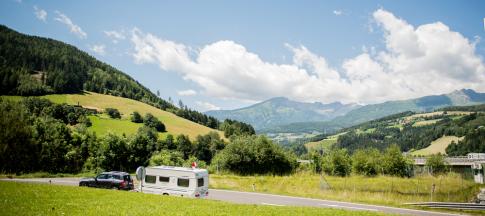
Whether you’re off on a road trip or need a car for local journeys, here’s everything you need to know about hiring a car abroad.
How to choose a car hire company
It’s sensible to shop around when choosing a car hire company. You can use comparison sites to find the best deals, but the most well-known names are Hertz, Sixt, Avis and Europcar.
You can also use big travel sites like Expedia or Opodo to find a good deal.
Remember that the cheapest price isn’t always the best, as there can be hidden charges.
For instance, some will have a mileage limit or an expensive fuel policy. Unless you’re planning to drive locally, go for unlimited mileage.
When to book car hire for your holiday
Ideally, you should arrange car hire as soon as you have confirmed flight times. The earlier you book, the better the deals.
If you turn up at a car hire desk without a booking when you arrive at your destination, you’ll probably get a worse deal.
You could be saddled with extras and hidden costs, as you may not have had time to read the terms and conditions and check over what you’re buying in detail.
There’s also a risk that they either have no cars available or have a poor selection.
What you need to hire a car abroad
You need:
- a valid passport
- a valid UK driving license
You might also need an International Driving Permit (IDP), a permit that certain countries need for you to be able to drive there: check which countries you need an IDP for.
Some companies might ask for a copy of your driving record. To access this, you need to get a DVLA code to share with them so they can check your license.
Paying for a car abroad
When renting a car abroad, it’s usually best to pay by credit card. Section 75 of the Consumer Credit Act, which covers payments from £100 to £30,000, protects you.
You should pay in the local currency to avoid poor exchange rates.
Fuel costs for hiring a car abroad
There are two options:
- paying for a full tank and returning it empty – this means you need to make sure you don’t run out of petrol before returning the car, but you also won’t be reimbursed for any excess petrol left in the car
- receiving a car with a full tank and returning it full – most companies use this policy, and it typically works out more economical for customers, although they might charge you if you don’t return the car full
Picking up a hire car
When picking up your hire car, carry out thorough checks. Look for scratches, dents or any other damage.
There should be a list of all the existing damage to the car in the paperwork they give you. If you find any additional damage when carrying out your checks, return to the desk and let them know.
Otherwise, you might be liable for the costs when you return the car.
If the desk has closed, take pictures and videos of the damage as proof.
Returning a hire car
When returning your hire car, do some final checks before leaving.
Take a photo of the mileage and fuel indicator, so you have evidence of how you’ve left the vehicle.
Also, make sure you haven’t left any of your belongings in the car.
Do I need insurance when hiring a car abroad?
Most car hire companies offer basic third-party insurance, sometimes called a Collision Damage Waiver (CDW), as standard.
If you’re in an accident abroad, you’re liable for the first portion of a repair or replacement cost. This is known as excess and could vary from £100 to £2,000.
Car rental companies may try to sell you a Super Collision Damage Waiver (SCDW) to lower your excess.
It’s generally cheaper if you choose to arrange your own excess cover via a third party instead.
Always choose a reputable firm, preferably authorised and regulated by the Financial Conduct Authority (FCA).
What to do if you have an accident abroad
If you’re in an accident abroad, you should:
- call an ambulance if anyone’s hurt, and if you’re able to
- get the other driver’s details
- note exactly where and when the accident happened
- take photos of the damage
- get contact details of witnesses if possible
Then speak to your car rental company with this information to hand.
What to do if your hire car is stolen
Just as in the UK, certain areas are at higher risk for car crime.
You should:
- park in well-lit and busy areas
- keep valuables and luggage out of sight
- double-check your locks
Read our guide on how to prevent car theft.
If your rental car is stolen, then you should:
- call the police and report it stolen
- let the car rental company know the vehicle has been stolen
A lot of car companies include theft protection cover. This will cover the cost of replacing the rental car if it’s stolen, but it doesn’t cover anything inside the car, such as your luggage.
This cover will be voided if you leave the car unlocked.


